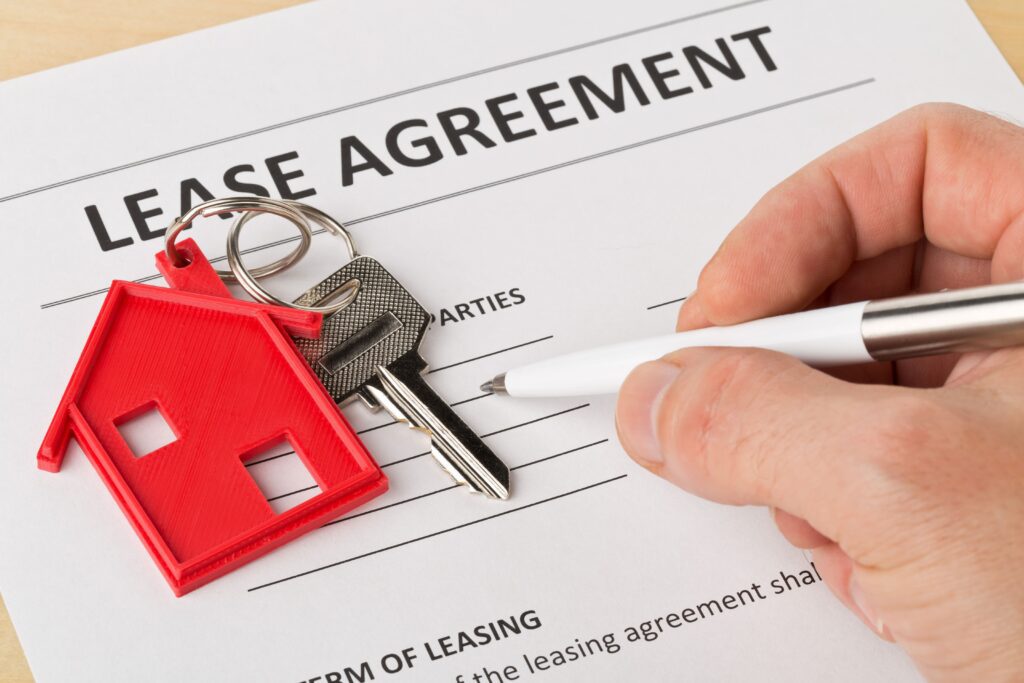
One of the most significant worries for New Jersey landlords is dealing with difficult tenants.
There are dozens of stories and anecdotes about difficult tenants. They guy who kept setting fires in the kitchen. The hoarder who had to be evicted. The pet-owner whose Pit Bull killed a neighbor’s cat.
Rarely are there happy endings.
Late payments, property damage, or constant disputes can derail your rental’s profitability and increase stress. You might have a tenant who is always looking for a reason to complain or who is particularly good at instigating trouble with neighbors.
Managing tenants is not always easy.
Fortunately, there are strategies to reduce these risks.
We are here to help you handle difficult tenants when they’re already in place, and we’re also going to share some tips on how to avoid those difficult tenants altogether.
Avoiding difficult tenants is all about setting a strong foundation through a thorough and consistent screening process. By verifying references, conducting credit and background checks, and trusting your instincts, you can build a less stressful and more rewarding landlord experience.
Tenant relationships matter, too, and we’ll talk about those.
First, let’s identify the types of difficult tenants you might be called upon to work with as a New Jersey landlord. Let’s also remember that tenants, even difficult tenants, are your paying customers. There’s a difference between a difficult tenant who makes impossible requests and outrageous accusations and a legitimately concerned tenant who has a valid complaint. Customer service has a place, even when it’s difficult.
As a real estate investor and landlord, you want to enjoy a pleasant – and profitable – rental experience.
Here’s how you can do it, even when you’re dealing with difficult residents.
Who Are These People?
Identifying the Most Common Difficult Tenants
Everyone who has ever dealt with a difficult tenant might recognize the problem in one of these difficult tenant types.
- Introducing the Tenant Who Doesn’t Pay Rent on Time.
Here we have the difficult tenant who for whatever reason never pays rent on the date that it’s due. They’ll have excuses. They’ll act surprised that you would be following up about late rent. Or, they’ll ignore you completely when you’re trying to collect that rent.
It’s important to have a process in place to deal with late rent payments, and that starts with a strong rent collection policy that’s well-enforced. And while it should never be your first option, you also need to be prepared to file for eviction if you don’t get anywhere with your tenants. We recommend that you deal with non-paying tenants by communicating constantly, serving all the required notices and documenting the correspondence, and if necessary, talking to a lawyer or a property manager about eviction.
Evictions are not an ideal solution for anyone. Avoiding them is best, and a thorough screening process is one way to mitigate your eviction risk. But, even good tenants sometimes cannot pay rent, and you’ll need to be prepared. Keep the lines of communication open during the eviction process. Even as you move towards court, try to work out a payment plan or an exit strategy with your tenants. Eviction should be your last resort.
- Tenants Who Thoughtlessly Damage Your New Jersey Rental Property
Have you ever rented to someone who created so much damage that the security deposit didn’t even cover all the repairs that were necessary? We have heard stories from other property managers and landlords about this happening, and it’s often a worst-case-scenario.
Move-in and move-out inspection reports, with photos, are essential to protecting yourself against potential tenant damages and the costs that can add up when you have a difficult tenant destroying your property.
After the tenant has moved out and you’ve gone inside the property to inspect it, you’ll take note of the damages. And before making any repairs to your property, you’ll want to take pictures of the damage. Keep receipts and invoices from the work that’s needed to be done to restore the condition of your property to how it looked before they damaged it. The security deposit can be used.
A good tenant relationship can prevent tenant damage. Conducting a maintenance walk-through during the tenancy can also tip you off to any potential problems.
Hold your tenants accountable during the lease period, even if they’re being difficult. As we always say: document everything. Communicate as best you can, and try to come to some understanding with your tenants.
- The Tenants Who Don’t Follow the Lease
Some residents just don’t think that they lease they signed applies to them.
Lease violations are problematic, and when you have a tenant who decides to sneak in an unauthorized pair of puppies or allows a guest to stay for months without being screened or added to the lease or paints the walls a bright, crazy color without your approval – you need to take action.
A good tenant will immediately come into compliance when a lease violation is noted.
A difficult tenant will be less willing to work with you and refuse to make any changes. They might ignore your communication attempts altogether.
Put the lease violation in writing and include a copy of the lease agreement that references your tenant’s action. Provide them the steps to remedy the situation and a deadline by which it needs to be completed.
If they do not comply, you have grounds to evict.
- Bad Neighbors
It’s possible the tenant you rented a home to looks great on paper and was adequately screened but then they become combative and difficult with their neighbors. When a resident is playing loud music, listening to their television at a level that’s disruptive, stealing packages off of neighbor’s steps or not cleaning up after their pets in the neighborhood, you can expect complaints and disputes.
If you have to get involved, be empathetic and compassionate. Do what you can to ensure your residents are following the lease and respecting the community and the neighborhood.
Again: prevention is so much easier than cure. Screen tenants thoroughly. Invest in good relationships. We’ll talk about this more in a bit.
- The Criminal Element
When there is criminal activity happening in your rental home, you can evict that tenant right away. The crime has to be documented, of course, so you’ll need a police report or some kind of evidence that supports your reason for removing a tenant.
What About the Tenants Who Are Just Too Demanding?
You may spend a lot of time responding to, listing to, and dealing with difficult tenants. Sometimes, they’re simply too demanding and it takes you away from the other work you could be doing for your properties and your other tenants.
You’ll need to set some boundaries. This is not always easy, and it’s one of the best reasons to work with a property manager: you won’t have to deal with that demanding, time-consuming tenant. Your management partner will know how to create a relationship that manages the tenant’s difficult personality while still providing an outstanding rental experience.
Managing Difficult Tenants Starts with Having (and Enforcing) a Strong Lease Agreement

Let’s talk about leases, because they can make an enormous difference in how to handle difficult tenants.
Whether it’s a dispute or a late rent payment or a refusal to come into compliance when a lease violation is noted, you may find yourself having to refer to your lease agreement for direction on how to proceed.
You’ll want to make sure that lease agreement is good.
It has to be legally enforceable in the state of New Jersey. It also has to be compliant with all of the laws and requirements in the state of New Jersey.
If something goes wrong with a tenant who has demonstrated that they’re not exactly easy to get along with, the first thing you want to do is consult your lease agreement. A thorough and detailed lease agreement will provide a lot of value when it comes to navigating difficulties. This is the document that provides a clear and consistent starting point for the tenancy, and the place you will always want to go when there are questions or problems.
Here is how a good lease can help:
| It offers direction, providing landlords like you with specific policies and procedures around everything from rent collection to pets. | It gives you a starting point when you approach a tenant. The lease records in writing the expectations you have for residents. |
| Leases include a landlord’s responsibilities. If tenants are being difficult because of something you’ve done or neglected to so, be prepared to hold yourself accountable. | With a strong lease, you’ll have a reference that provides direction if there’s a dispute between tenants or between the landlord and the tenant. |
The lease is where all expectations and responsibilities are clearly laid out. For example, if there’s a dispute between two of your multi-family tenants about noise late at night, you can refer them to the quiet hours section of the lease agreement.
Conflicts and Disputes with and between Difficult Tenants
Let’s talk about tenants who are difficult with each other. And also tenants who are difficult with you.
|
Conflicts Between Tenants As New Jersey property managers, we don’t enjoy wading into conflicts that don’t directly involve us. But, it’s hard to walk away when it impacts your rental property and the people living in it. |
Conflicts Between Tenants and Landlords Most landlord and tenant disputes are the result of poor communication or one party not understanding their responsibilities. The worst disputes can lead to court appearances, and those rarely work out well for landlords. |
As professionals, our goal is to avoid court. We want to avoid tenant disputes altogether, in fact. By keeping residents happy, they are more likely to pay rent, take care of your property, and renew the lease agreement.
Here are our ideas on how to minimize disputes with tenants and between tenants.
 |
Share and reinforce clear expectations Tenants will quickly become difficult when they don’t understand what’s expected of them. Chaos and disorganization will always inspire conflict and disputes. So, share expectations and be clear about responsibilities at the beginning of a lease term. Reinforce those expectations throughout the tenancy. You’ll want rent to be paid on time, you’ll want your property to be cared for, and you’ll want any problems or repair needs to be brought to your attention immediately. Discuss the elements of the lease with your tenant before the move-in date so everyone understands how the tenancy should progress and who should be responsible for what. |
|
Prioritize responsive maintenance Maintenance can be a huge reason for tenant disputes with landlords. A tenant has every right to be difficult when you’re ignoring their maintenance requests. Be responsive when it comes to repairs. Your residents expect to live in a home that’s well-maintained and in good condition. That’s what they’re paying for. So, even if you cannot repair something right away, let your tenants know that you’re aware of the problem and you have a plan to take care of it. |
Communicate and be available Difficult tenants don’t communicate. Difficult landlords don’t communicate, either. Communication drives how your tenants interact with you and with each other. You’re responsible for setting communication standards, so remain available and accessible. Tenants should feel comfortable reaching out to you. Communication is critical to maintaining a good relationship with your tenant. |
Avoiding Difficult Tenants
 While we have shared a number of great strategies for dealing with difficult tenants, the better option is always to avoid them.
While we have shared a number of great strategies for dealing with difficult tenants, the better option is always to avoid them.
How?
It starts with – you guessed it – good tenant screening. This is the backbone of successful property management in New Jersey. By thoroughly evaluating potential tenants, you’re setting yourself up for fewer surprises as the tenancy takes hold. A well-screened tenant is more likely to pay rent on time, follow the lease terms, and care for your property as if it were their own.
If tenant screening isn’t the strongest part of your landlord process yet, it’s time to make it a priority. Mistakes at this stage can lead to challenging tenant relationships that could have been avoided.
Tenant Screening Tips to Help You Avoid Difficult Tenants
- Request and Verify References
It’s essential to ask for references from previous landlords or employers. However, simply requesting them is not enough—you should take the time to verify details. Here’s what to ask about when contacting past landlords:
- Did they pay rent on time?
- Did they take care of the property?
- Were there any disputes?
Be cautious if they seem reluctant to provide references or if previous landlords only offer vague details.
- Conduct a Credit and Background Check
A tenant’s financial stability is one of the best indicators of reliable behavior. Credit checks can reveal whether they have a history of on-time payments or missed obligations. Similarly, running a background check ensures there are no red flags, such as a criminal record, that could indicate future tenant issues.
A tenant with sound financial habits is likely to prioritize paying rent on time each month. That eliminates one category of difficult tenants.
- Create a Detailed Rental Application
A rental application is more than just paperwork—it’s a treasure trove of information. Include sections that require details like:
- Employment history
- Income level
- Previous rental addresses
- Emergency contact information
The more you know about their stability and responsibility, the better you can assess if they’ll make a good tenant. Standardizing your application process also ensures fairness for all applicants.
Red Flags to Watch For During Tenant Screening
While screening potential tenants, these red flags could signal future issues:
- Incomplete Applications. If a tenant avoids providing critical information, it may be a sign they’re trying to hide something.
- Frequent Moves. A long list of short-term stays can suggest instability and should be investigated further.
- Poor Credit History. A pattern of late payments could be cause for concern.
- Evasive Answers. A hesitant or vague response during interviews often raises questions about trustworthiness.
Property Management and Tenant Relationships

We mentioned this briefly: if you really want to avoid those difficult tenants and you’re hoping for harmonious relationships between tenants and with tenants, you have a resource available: professional property management.
Why deal with difficult tenants at all? Your New Jersey property manager acts as a buffer between you and the tenants. Property managers are also more knowledgeable about landlord and tenant law, and we have experience dealing with tenant disputes. You can save yourself a lot of time, and potentially a lot of money and liability by working with a management company.
We are happy to report that we don’t deal with a lot of tenant conflict or disputes. We establish and maintain great relationships, and we’re systematic and methodical about taking care of any minor problems or concerns that may pop up. We’re rigorous when it comes to screening tenants, and we are willing to balance holding tenants accountable with providing a fantastic rental experience.
Let’s avoid difficult tenants. Contact us at Realty Solutions. We lease, manage, and maintain homes in Audubon, Collingswood, Cherry Hill, Haddon Heights, Blackwood, and the surrounding communities.
